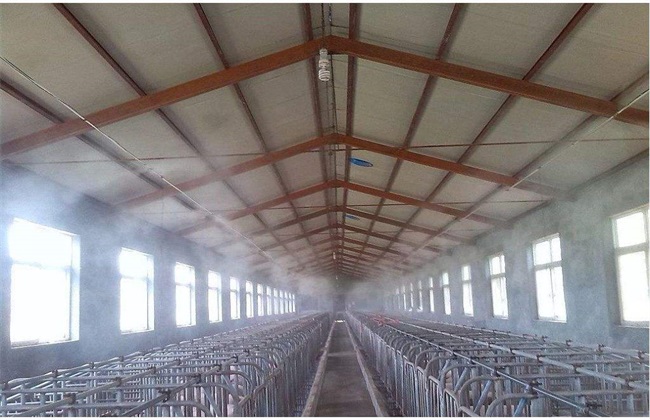How to manage aquaculture ponds in Meiyu season
The Meiyu season is usually in June or July every year, when the humidity is high, the temperature is high, and the light is less, which is also the most critical period for aquaculture. The water quality and water temperature continue to rise, and it is also the period when aquatic animals grow fastest. Oxygen content decreases with the improvement of the water body. And there are more rainstorms, thundershowers and rainy days in the plum rain season, which have a greater impact on aquaculture, diseases occur frequently, and a little carelessness may cause huge losses. So how to manage the aquaculture ponds during the rainy season? Let's take a look.

1. Strengthen the control of water quality
During the rainy season, the algae in the culture ponds are lack of light and grow slowly, but the food intake of aquatic animals increases, and the increase of residual bait and excreta will also lead to the deterioration of water quality and hypoxia. Therefore, it is necessary to properly increase oxygen to break the stratification of dissolved oxygen, balance the amount of dissolved oxygen in water, stabilize harmful gases in water, promote the decomposition of organic matter in pool water, and inhibit the reproduction of anaerobic bacteria. Oxygenation depends on the weather, water quality and other conditions, generally open the aerator, serious when sprinkling oxygenator. Regularly use the bottom material improver to improve the bottom material, and turn on the aerator to eliminate the toxic and harmful substances produced by the decomposition of organic matter at the bottom, keep the bottom material good and prevent the deterioration of water quality.
2. Strengthen daily management
Feeding is to ensure the freshness of feed, firmly do not feed moldy feed, so as to avoid water pollution and animal poisoning, pay attention to the storage conditions of pellet feed, should not buy too much feed at one time to prevent mildew. Feeding should be flexibly controlled according to weather changes and food intake, and 6-70% of the food should be controlled. After feeding, the residual bait should be removed as much as possible to avoid polluting the water quality, and the amount of feeding should be appropriately reduced in hot and stuffy rainy days. To strengthen the work of pond patrol, timely measures should be taken to find abnormal problems, and the first thing to find death is to improve the environment, consult professionals and choose appropriate treatment plans.
3. Do a good job in disease prevention
The feeding of radish should be controlled in the dense weather, so as not to cause enteritis or physiological diseases caused by feeding management. anti-bacteria such as Sanhuang powder can be added to the feed for about 5 days, and the good weather should be killed once before the coming of Meiyu. Disinfect again in three days, disinfect pests in the appropriate water quality antidote after disinfection. In the case of high water temperature, it is safe to disinfect and use iodine preparations, in addition, take vitamin C, K and immune enhancers to enhance the immunity of fish. Once a disease occurs, take less bait or not, apply oxygen-increasing granules appropriately, or ask professionals to do pathogen detection and drug sensitivity test to prescribe the right medicine after diagnosis.
4. Prepare for flood control
Farmers should repair the pool ridge and drainage gates and ditches as soon as possible, and overhaul the mechanical equipment and electrical circuits to ensure safe use. There are many torrential rains in Meiyu season, for low-lying ponds and thin ridges, it is very easy to cause pond embankment damage or pond overflow, so measures such as fixing or lowering the water level in advance should be taken in advance to avoid escape.
The above is the introduction of how to manage aquaculture ponds in Meiyu season. I hope it can help you. If you want to know more about it, please pay attention to us.
Related
- On the eggshell is a badge full of pride. British Poultry Egg Market and Consumer observation
- British study: 72% of Britons are willing to buy native eggs raised by insects
- Guidelines for friendly egg production revised the increase of space in chicken sheds can not be forced to change feathers and lay eggs.
- Risk of delay in customs clearance Australia suspends lobster exports to China
- Pig semen-the Vector of virus Transmission (4)
- Pig semen-the Vector of virus Transmission (3)
- Five common causes of difficult control of classical swine fever in clinic and their countermeasures
- Foot-and-mouth disease is the most effective way to prevent it!
- PED is the number one killer of piglets and has to be guarded against in autumn and winter.
- What is "yellow fat pig"? Have you ever heard the pig collector talk about "yellow fat pig"?



